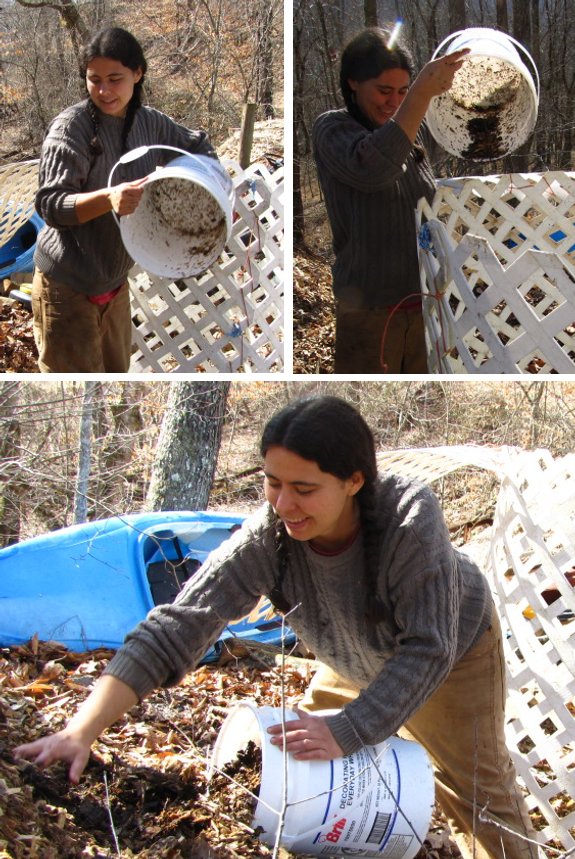
5 gallon bucket infrastructure

We've been adding new 5
gallon buckets to our
infrastructure for the past year and it still seems like we need a few
more.
The guy
we bought our worms from
had an impressive inventory of used buckets. He gets them from a bakery
for free and just has to rinse out the icing. I suspect the plastic
handle might give out sooner than our store bought buckets, but does
longevity matter as much when the replacement cost is zero?
I think I'll give this a try
with the bakery inside our grocery store the next time I go shopping.
Want more in-depth information? Browse through our books.
Or explore more posts by date or by subject.
About us: Anna Hess and Mark Hamilton spent over a decade living self-sufficiently in the mountains of Virginia before moving north to start over from scratch in the foothills of Ohio. They've experimented with permaculture, no-till gardening, trailersteading, home-based microbusinesses and much more, writing about their adventures in both blogs and books.
Want to be notified when new comments are posted on this page? Click on the RSS button after you add a comment to subscribe to the comment feed, or simply check the box beside "email replies to me" while writing your comment.

Hi Mark and Anna,
I've never commented before but I really enjoy following your stories! I work for a nature center centered on an island of South Carolina and we faced several thousand five gallon buckets discarded every year by the island's hospitality industry - we're working on creative ways to try to divert those from the landfill. So you may want to check in with a hotel; you probably don't want the ones with the more aggressive chemical cleaners, even for carting around compost, but dish-washing detergent should be fairly benign once well rinsed out.
Sarah
@Sarah: Most plastic buckets are made from polyethylene ("PE"). If you rinse them out properly with lots of water, it doesn't matter if they've contained detergents or cleaners, since PE can withstand many chemicals and doesn't really absorb them. Really dangerous chemicals are as a rule not packaged in plastic. And since detergents as a rule end up in the drain anyway, cleaning out the buckets doesn't really matter wrt releasing extra material in the environment, provided it is properly diluted.
Currently the second best way (after re-using them as buckets ) to recycle them is to gather them for cleaning, shredding and re-use as injection moulding material. If that is not cost effective, incineration is a good alternative if it is done in a proper incinerator.
) to recycle them is to gather them for cleaning, shredding and re-use as injection moulding material. If that is not cost effective, incineration is a good alternative if it is done in a proper incinerator.
@Anna; what do you do with the buckets when you can't use them anymore?